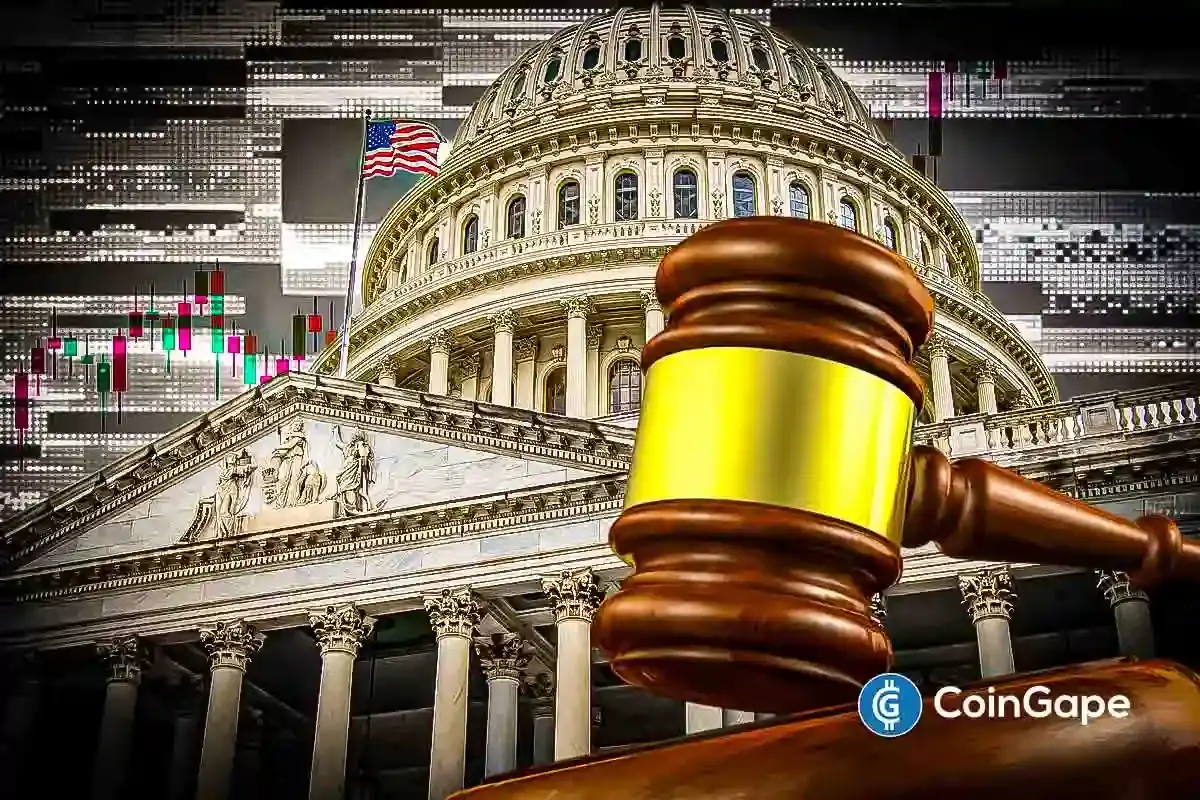Coinbase Vs SEC: Agency Refuses Subpoena For Gary Gensler’s Email Records

Highlights
- The SEC has rejected Coinbase's subpoena for particular investigation documents.
- In addition, the agency has refused to provide Chair Gary Gensler's email records.
- Moreover, the SEC urged to court to deny Coinbase's subpoena request.
The ongoing Coinbase vs. SEC legal battle has intensified with the agency’s latest response. The SEC on August 5 refused to produce additional documents and emails from SEC Chair Gary Gensler, as requested by Coinbase. This refusal stems from the exchange’s broad discovery requests, which the SEC argues are “irrelevant” and unduly burdensome.
Latest Development In Coinbase Vs SEC Lawsuit
In the court filing, the regulator asserted that the requested documents do not pertain to the Coinbase vs. SEC lawsuit. The crypto exchange had asked the SEC to review and produce documents from 17 additional custodians. It hoped to find materials related to Coinbase’s platform and services, the named tokens, or the application of securities laws to digital assets.
However, the agency argued that this request fails to meet the relevance and proportionality requirements under Federal Rule of Civil Procedure 26(b)(1). In the Coinbase vs. SEC case, the agency said that these requests amount to a “fishing expedition of marginal utility.” Moreover, they expect it to impose a “tremendous burden” on the agency.
The SEC’s filing stated, “Coinbase fails to satisfy Rule 26(b)’s relevance and proportionality requirements.” Furthermore, the agency pointing out that Coinbase’s example of an SEC meeting with FTX and a provided “slide deck” does not justify the broad scope of the requested documents. The agency further argued:
“If a document references ‘municipal bonds,’ it does not follow that it is relevant to and discoverable in all cases about any municipal bonds. This case involves how Coinbase’s platform operates, not how FTX’s did.”
The exchange also sought documents to support its “fair notice” defense. It requires that crypto regulations provide sufficient notice of what conduct is required or prohibited. However, the agency contended that such a defense does not justify sweeping discovery requests.
The regulator emphasized that the requested documents are not formal agency pronouncements considered in past cases. These include internal communications and drafts of speeches by SEC officials. The filing highlighted that “courts have routinely adjudicated the fair notice defense without the type of expansive evidence Coinbase requests.”
Also Read: XRP News: Ripple At Risk Of Another SEC Lawsuit, Here’s Why
Denial To Produce Gary Gensler’s Email Records
The agency underscored the extensive efforts it has already undertaken in the Coinbase vs. SEC case. These include reviewing or producing nearly 357,000 documents related to the topics at hand. The SEC’s filing mentioned, “The burden of fishing through and logging over 3 million more documents cannot be justified.” Moreover, it noted that the additional documents are likely to be privileged and irrelevant to the Coinbase vs. SEC case.
In addition, the exchange’s request for a sample of Chairman Gary Gensler’s personal emails was also met with firm resistance. The SEC argued that Gensler’s views expressed in speeches are his own and not on behalf of the Commission. Also, it doesn’t mean that these statements were made in a private setting.
The regulator stated, “The Chair’s statement reflects the uncontroversial principle that in a five-member commission, one alone cannot bind the five.” The regulatory body further argued that even if Gensler delivered a speech in his private life, this would not justify the intrusive search the crypto exchange proposed. The American watchdog also warned of the potential repercussions of granting exchange’s requests.
It stated, “Requiring the Chair to expend time on searches or submit a ‘sampling’ of personal emails is inherently time-consuming and thus prejudicial to the SEC. And it will also create an in terrorem effect on current and prospective SEC employees, who will fear that their personal lives will be searched if they give a particular disclaimer when speaking publicly as SEC employees.” Hence, in the ongoing Coinbase vs. SEC case, the latter has asked the court to deny the exchange’s request.
Also Read: Breaking: Elon Musk Renews Lawsuit Against Sam Altman’s OpenAI
Play 10,000+ Casino Games at BC Game with Ease
- Instant Deposits And Withdrawals
- Crypto Casino And Sports Betting
- Exclusive Bonuses And Rewards

- Ripple Bets On AI Boom With Strategic Investment In AI Agent Infrastructure Startup
- Prediction Market News: Kalshi Fines MrBeast Associate Over Insider Trading Amid State Crackdown
- CLARITY Act: Banks, Crypto Yet To Agree On New Crypto Bill Draft As March 1 Deadline Looms
- Michael Saylor Predicts $50T From Bonds Could Flow Into Bitcoin Ecosystem as Digital Credit Evolves
- Bitcoin Treasury Firm GD Culture Authorizes Sale of 7,500 BTC as Expert Warns Of More ‘Pain’
- Dogecoin, Cardano, and Chainlink Price Prediction As Crypto Market Rebounds
- Will Solana Price Rally to $100 If Bitcoin Reclaims $72K?
- XRP Price Eye $2 Rebound as On-Chain Data Signals Massive Whale Accumulation
- Ethereum Price Reclaims $2K- New Rally Ahead or a Temporary Bounce?
- COIN Stock Price Prediction as Wall Street Pros Forecast a 62% Surge
- Cardano Price Signals Rebound as Whales Accumulate 819M ADA

 Buy Presale
Buy Presale

















